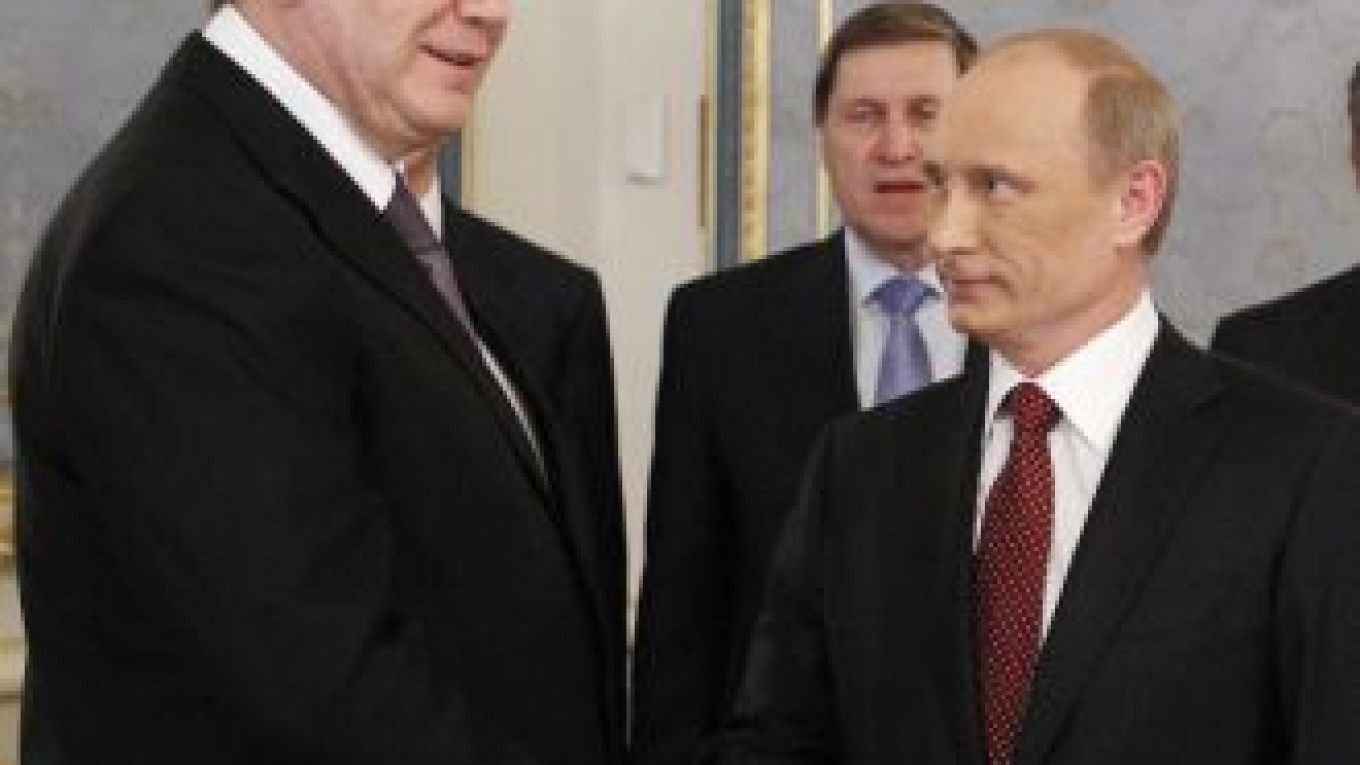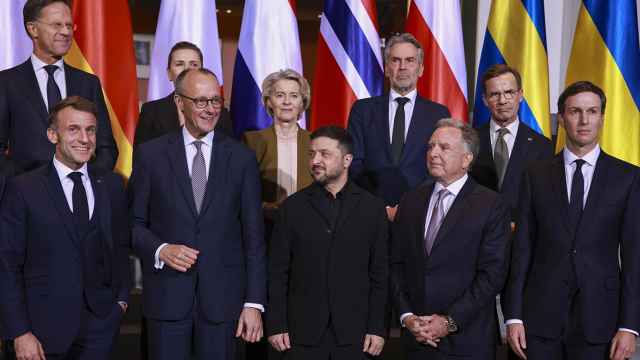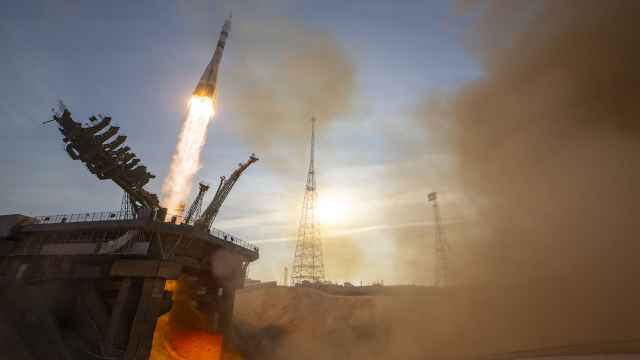Russia and Ukraine initialed a new oil transit agreement Wednesday as Prime Minister Vladimir Putin hailed a blossoming of trade between the neighbors since President Viktor Yanukovych's election in February.
“I have to disappoint you [reporters], but we've initialed an agreement on the transit of oil," Energy Minister Sergei Shmatko said at a news conference in Kiev, Interfax reported.
Shmatko's Ukrainian colleague said the five-year deal envisions a volume of 25 million tons but other details remain to be decided, Interfax reported.
Shmatko indicated that Moscow was in no hurry to reassess its gas supply contracts with Ukraine, however, which Kiev had stressed as a priority ahead of Wednesday's talks.
“Everything happens in its own time,” he told Bloomberg. “No good agreements can be made if we are forced.”
The oil deal was one of several to be signed by a Russian delegation headed by Putin in Kiev for the latest round of the Russian-Ukrainian intergovernmental trade commission.
"As a result of the policy that you adopted toward Russia, this political component is being transformed into economic results,” Putin said ahead of a meeting with Yanukovych. “In January-September this year, trade grew by 77 percent. We are practically at pre-crisis levels.”
The talks were set to focus on building ties between state-owned firms. Apart from the oil transit deal, Russia's United Aircraft Corporation and Ukraine's Antonov signed a deal on creating a 50-50 joint venture called Civil Aircraft.
Putin and Yanukovych were also expected to discuss nuclear energy, agriculture, transport and space exploration.
But the differences over gas mean that the holy grail for the Russians — a merger of Naftogaz Ukrainy with the vastly larger Gazprom — continues to remain elusive.
Earlier in the day, Ukrainian Prime Minister Mykola Azarov once again put the countries at loggerheads over gas tariffs, saying Kiev's current deal to buy Russian gas violates Ukrainian law.
“The market realities have changed, so the basic agreement and the price formula need to be reviewed. Besides, Ukraine has joined the European Energy Charter and passed the gas market bill,” Azarov told a government session in Kiev, Interfax reported.
Moscow struck a 10-year gas supply deal in 2009 under the previous government, putting an end to a system of one-year contracts that had led to several gas wars in the middle of winter.
But Ukrainian officials had made it clear that they see the deal as untenable, despite an agreement struck in April giving Ukraine a $100 per 1,000 cubic meters discount in exchange for an extension of the Russian Black Sea Fleet's lease on the port of Sevastopol.
Under the arrangement, Ukraine pays $248, which led to a September gas bill of $715 million. Gazprom has said Ukraine is likely to buy Russian gas at about $250 per 1,000 cubic meters in the fourth quarter of this year and in 2011.
Russia has in the past offered to cut the price of gas to Ukraine if Kiev agrees to merge Naftogaz with Gazprom. But such a deal is almost impossible because it would amount to “political suicide” for Yanukovych, said Andriy Gubachov, of Alfa Bank Ukraine.
A Message from The Moscow Times:
Dear readers,
We are facing unprecedented challenges. Russia's Prosecutor General's Office has designated The Moscow Times as an "undesirable" organization, criminalizing our work and putting our staff at risk of prosecution. This follows our earlier unjust labeling as a "foreign agent."
These actions are direct attempts to silence independent journalism in Russia. The authorities claim our work "discredits the decisions of the Russian leadership." We see things differently: we strive to provide accurate, unbiased reporting on Russia.
We, the journalists of The Moscow Times, refuse to be silenced. But to continue our work, we need your help.
Your support, no matter how small, makes a world of difference. If you can, please support us monthly starting from just $2. It's quick to set up, and every contribution makes a significant impact.
By supporting The Moscow Times, you're defending open, independent journalism in the face of repression. Thank you for standing with us.
Remind me later.






